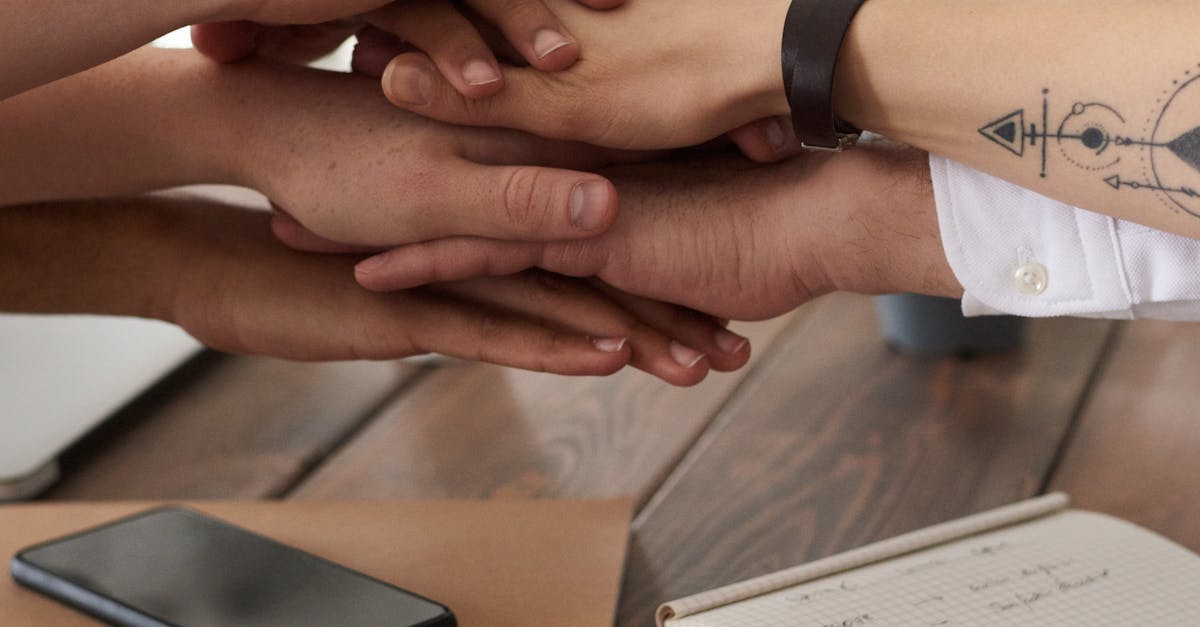Building rapport is a critical aspect of effective communication. Whether you are trying to develop a strong relationship with a colleague, client, or friend, establishing rapport is the key to creating trust and understanding. In today’s fast-paced world, where technology has replaced face-to-face interactions, building rapport may seem like a lost art. However, it remains an essential skill for successful communication, particularly in professional settings. In this article, we will explore the importance of building rapport in communication, techniques for developing rapport, and the benefits of strong communication rapport.
Importance of Building Rapport in Communication
Rapport refers to the mutual trust and understanding between two individuals. It involves finding common ground, connecting on a personal level, and establishing a positive relationship. When it comes to communication, having rapport can make all the difference in how your message is received. Here are some reasons why building rapport is crucial in communication:
Establishes Trust and Understanding
One of the main reasons why rapport is essential in communication is that it helps to establish trust and understanding between two parties. When there is mutual trust, people are more likely to listen to what you have to say and be open to your ideas. They are also more likely to share their thoughts and feelings without fear of judgment. This leads to better communication and a deeper understanding of each other’s perspectives.
Improves Communication Effectiveness
Communication involves not only the words we use but also our tone, body language, and facial expressions. When we have a good rapport with someone, we are more likely to pay attention to these non-verbal cues and understand the underlying messages behind the words. This improves the effectiveness of our communication as we can pick up on subtle nuances and adjust our approach accordingly.
Creates a Positive Work Environment
In a professional setting, having a good rapport with your colleagues can significantly impact the work environment. When everyone feels connected and comfortable with each other, there is a sense of camaraderie and teamwork. This leads to better collaboration, increased productivity, and a more positive work culture.
Helps to Navigate Conflict
No matter how well you communicate, conflicts are bound to arise in any relationship. However, when there is a strong rapport, it becomes easier to navigate these conflicts. People are more willing to listen to each other’s perspectives and find a resolution that works for both parties. Without rapport, conflicts can escalate quickly, leading to strained relationships and poor communication.
Techniques for Building Rapport

Building rapport is not a one-size-fits-all approach. Different techniques may work better for some individuals or situations than others. The key is to be genuine and adapt your approach based on the person you are trying to connect with. Here are some techniques for building rapport:
Active Listening
Active listening is an essential skill for building rapport. It involves giving your full attention to the person speaking and showing genuine interest in what they have to say. To actively listen, maintain eye contact, nod your head, and use verbal cues such as “uh-huh” and “I see.” Avoid interrupting and resist the urge to jump in with your own thoughts or experiences. By actively listening, you show that you value the other person’s perspective and are invested in the conversation.
Find Common Ground
Finding common ground is crucial in building rapport. Look for shared interests, experiences, or beliefs that you can connect on. This could be something as simple as supporting the same sports team or having a similar taste in music. When you find common ground, it creates a sense of familiarity and connection, making it easier to build rapport.
Use Positive Body Language
Body language plays a significant role in building rapport. It can convey confidence, openness, and trustworthiness. To build rapport, use open body language, such as keeping your arms uncrossed and facing the person you are speaking with. Lean in slightly to show interest and maintain a relaxed posture. Avoid fidgeting or checking your phone, as this can indicate disinterest.
Mirror and Match
Mirroring and matching is a technique commonly used in building rapport. It involves subtly mimicking the body language, tone, and pace of the person you are communicating with. This can help create a feeling of similarity and understanding. However, it is essential to use this technique cautiously as it can come across as insincere if overdone.
Ask Open-Ended Questions
Asking open-ended questions is an effective way to build rapport. These are questions that require more than a simple yes or no answer and encourage the other person to share their thoughts and feelings. This shows that you are genuinely interested in getting to know them better and can lead to deeper conversations and a stronger connection.
Benefits of Strong Communication Rapport

Building rapport in communication has numerous benefits that can positively impact both personal and professional relationships. Here are some advantages of having strong communication rapport:
Better Understanding and Empathy
When we have a strong rapport with someone, we are better able to understand their perspective and empathize with their experiences. This leads to more meaningful and fulfilling relationships, as we are able to see things from their point of view and appreciate their feelings and struggles.
Easier Conflict Resolution
As mentioned earlier, having a good rapport makes it easier to navigate conflicts. When there is mutual trust and understanding, it becomes easier to find a resolution that works for both parties. This can lead to stronger and more resilient relationships as differences are resolved without causing resentment or hurt feelings.
Increased Influence and Persuasion
Having strong communication rapport can increase your influence and persuasion abilities. When people trust and connect with you, they are more likely to listen to your ideas and opinions and be swayed by your arguments. This can be beneficial in a variety of settings, such as negotiations, sales, or leadership positions.
Builds Trust and Loyalty
Trust is the foundation of any relationship, and strong communication rapport can help build trust and loyalty. When people feel comfortable and connected with you, they are more likely to share sensitive information and rely on your support. This can lead to deeper and more meaningful relationships that stand the test of time.
Case Studies/Examples
Let’s look at some real-life examples of how building rapport has had a significant impact on communication:
Case Study 1: Team Building
A company was struggling with employee morale and productivity due to a lack of teamwork and communication amongst their departments. They decided to invest in team-building activities to improve rapport and collaboration amongst their employees. The result was a significant increase in productivity and a more positive work environment.
Example 1: Active Listening
John, a manager at a consulting firm, had trouble connecting with his team members. His team felt that he did not listen to their opinions or concerns and often dismissed their ideas. John realized that he needed to improve his active listening skills to build rapport with his team. He began actively listening to their perspectives and acknowledging their contributions. As a result, his team felt more valued and understood, and their productivity and satisfaction increased significantly.
Example 2: Find Common Ground
Samantha, a recruitment consultant, struggled to establish rapport with her clients during initial meetings. She found that most clients were guarded and hesitant to open up. Samantha started researching her potential clients before meeting them and found common interests or experiences to discuss. This led to more relaxed and open conversations, making it easier for Samantha to establish rapport and build a stronger connection with her clients.
Conclusion
In conclusion, building rapport in communication is crucial for establishing trust, understanding, and positive relationships. It involves active listening, finding common ground, using positive body language, mirroring and matching, and asking open-ended questions. The benefits of strong communication rapport include better understanding and empathy, easier conflict resolution, increased influence and persuasion, and trust and loyalty. By incorporating these techniques into your interactions, you can improve your communication skills and build stronger and more meaningful connections with those around you.
